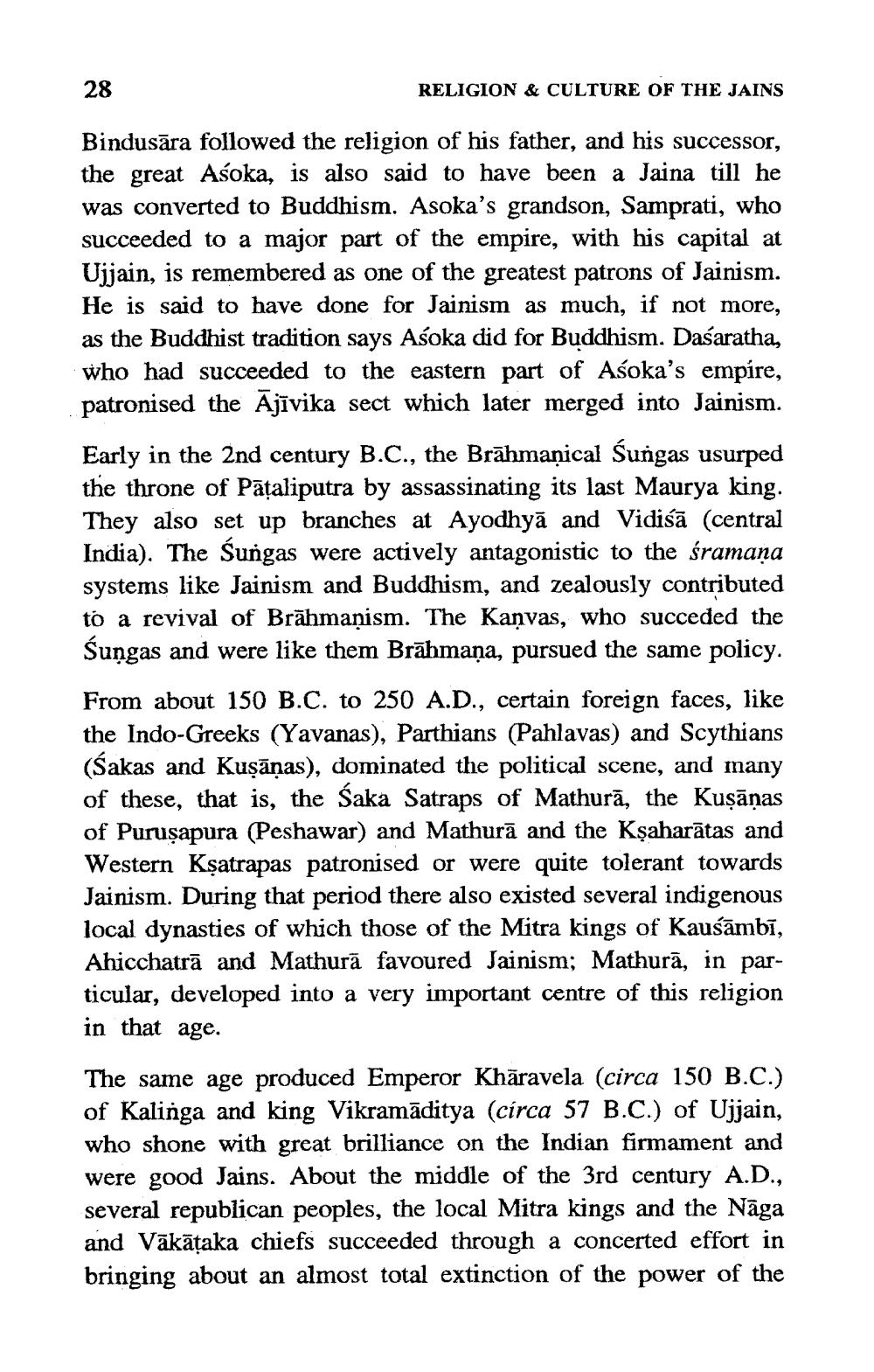________________
28
RELIGION & CULTURE OF THE JAINS
Bindusāra followed the religion of his father, and his successor, the great Asoka, is also said to have been a Jaina till he was converted to Buddhism. Asoka's grandson, Samprati, who succeeded to a major part of the empire, with his capital at Ujjain, is remembered as one of the greatest patrons of Jainism. He is said to have done for Jainism as much, if not more, as the Buddhist tradition says Asoka did for Buddhism. Dasaratha, who had succeeded to the eastern part of Asoka's empíre, patronised the Ajīvika sect which later merged into Jainism.
Early in the 2nd century B.C., the Brāhmaṇical Sungas usurped the throne of Pāțaliputra by assassinating its last Maurya king. They also set up branches at Ayodhyā and Vidiśā (central India). The Sungas were actively antagonistic to the śramana systems like Jainism and Buddhism, and zealously contributed to a revival of Brāhmaṇism. The Kanvas, who succeded the Sungas and were like them Brāhmaṇa, pursued the same policy. From about 150 B.C. to 250 A.D., certain foreign faces, like the Indo-Greeks (Yavanas), Parthians (Pahlavas) and Scythians (Sakas and Kuşāņas), dominated the political scene, and many of these, that is, the Saka Satraps of Mathurā, the Kuşānas of Puruşapura (Peshawar) and Mathurā and the Kşaharātas and Western Kşatrapas patronised or were quite tolerant towards Jainism. During that period there also existed several indigenous local dynasties of which those of the Mitra kings of Kausāmbī, Ahicchatrā and Mathurā favoured Jainism; Mathurā, in particular, developed into a very important centre of this religion in that age. The same age produced Emperor Khāravela (circa 150 B.C.) of Kalinga and king Vikramāditya (circa 57 B.C.) of Ujjain, who shone with great brilliance on the Indian firmament and were good Jains. About the middle of the 3rd century A.D., several republican peoples, the local Mitra kings and the Nāga and Vākāțaka chiefs succeeded through a concerted effort in bringing about an almost total extinction of the power of the




